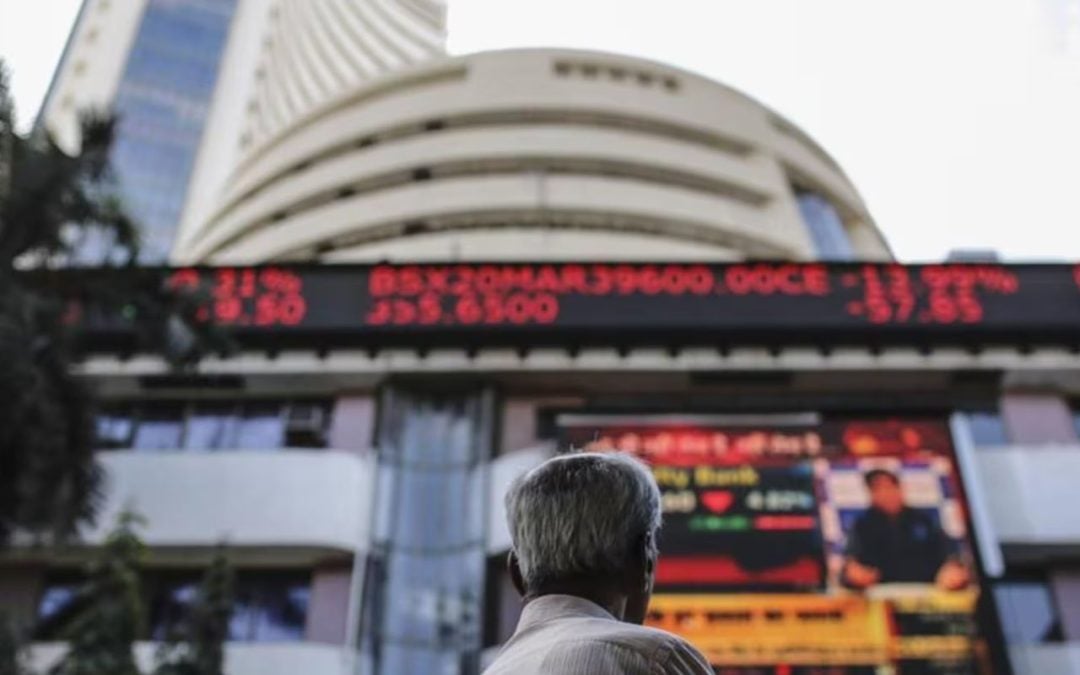The Indian stock market stands at a critical juncture, facing multiple potential challenges that could trigger a significant market correction. Investors are navigating a complex landscape marked by year-end mutual fund portfolio adjustments, foreign institutional investor profit booking, geopolitical tensions, and uncertainties surrounding global economic policies.
The Nifty index faces potential volatility from factors including Federal Reserve decisions, Middle East instability, rupee depreciation, and upcoming corporate quarterly results, creating an atmosphere of cautious anticipation among market participants.
Reasons for the recent Volatility in the Markets
Cleaning of Books by Mutual Fund Houses
At the end of the year, mutual fund houses clean their books to showcase better profitability. This often leads to large-scale selling of stocks, disturbing market stability. The resulting volatility impacts stock prices and creates temporary uncertainty, especially for retail investors who may find it challenging to navigate sudden price movements. This practice can also lead to misaligned valuations, adding to the nervousness in markets already grappling with macroeconomic and geopolitical pressures.
FIIs Booking Profits
Foreign Institutional Investors (FIIs) frequently book profits ahead of the holiday season, reducing their market exposure. This withdrawal of foreign capital affects market liquidity and can lead to a decline in stock prices. The sudden outflow disrupts investor sentiment, especially in emerging markets like India, where FIIs play a significant role in driving market trends. The reduced buying interest from FIIs further contributes to market uncertainty during this period, heightening volatility for domestic investors.
Fed Reserve Interest Rate Decision
The Federal Reserve’s interest rate decisions heavily influence global liquidity and capital flows. A rate hike strengthens the U.S. dollar, making dollar-based assets more attractive and causing capital outflows from emerging markets like India. This impacts the rupee, weakens market sentiment, and raises borrowing costs. Conversely, a rate cut can inject liquidity but also signals potential economic concerns. These decisions create a ripple effect on global and Indian stock markets, contributing to uncertainty and increased volatility. With the Fed rate cut decision looming tonight (December 19, 2024), the market seems to be looking for clarity before deciding on the direction.
Uncertainty in Donald Trump’s Trade Policy
Speculations about trade policies under Donald Trump introduce unpredictability into global markets. Potential tariff hikes or protectionist measures could disrupt global supply chains and impact export-driven economies like India. Investors fear the repercussions of abrupt changes in trade dynamics, especially on sectors like IT and pharmaceuticals that rely heavily on exports.
The lack of clarity surrounding U.S. trade policies increases market nervousness, adding another layer of uncertainty for global and domestic investors.
Uncertainty in the Middle East
Political instability in the Middle East, particularly with the potential collapse of the Syrian government, creates geopolitical tension. This impacts global crude oil prices, which directly affect import-dependent economies like India. A spike in oil prices raises inflation and puts pressure on India’s fiscal deficit, unsettling investor confidence. The heightened uncertainty in the region also leads to risk aversion, causing global markets, including India’s, to experience heightened volatility.
Sinking INR Against USD
The depreciation of the Indian rupee against the U.S. dollar adds to economic uncertainty. A weaker rupee increases the cost of imports, especially crude oil, and drives inflation higher. It also raises the borrowing costs for companies reliant on foreign debt. While export-focused sectors like IT and pharma may benefit, the overall market sentiment is negatively impacted. The rupee’s decline makes the equity market more vulnerable to foreign outflows, contributing to market instability.
Uncertainty Over Q3 Results
With Q3 corporate results due in January, investors remain cautious about market performance. Concerns over weak earnings, macroeconomic pressures, and sector-specific challenges create nervousness. Industries affected by sluggish demand or rising input costs are under scrutiny, and any underperformance could trigger a market correction. This uncertainty keeps investors on edge, making the markets more volatile as they await clarity on corporate earnings and growth prospects for the year ahead.
SEBI Tightens ODI Rules to Enhance Transparency
SEBI has introduced stricter rules for Offshore Derivative Instruments (ODIs) to improve transparency and reduce risks in Indian markets. ODIs must now be fully backed by securities, excluding derivatives, and hedged one-to-one throughout their tenure. ODI issuers must register separately under a dedicated FPI category, except for ODIs backed by government securities.
Additionally, SEBI mandates detailed disclosures for ODI subscribers with significant market exposure—those holding over 50% in a single corporate group or equity positions exceeding ₹25,000 crore. These measures aim to curb regulatory loopholes, align ODIs with FPI norms, and safeguard India’s financial markets from systemic risks.
Conclusion
The Indian stock market’s trajectory remains uncertain, with multiple interconnected risks threatening market stability. From geopolitical tensions and global economic policies to domestic financial regulations, investors must remain vigilant. While challenges like FII outflows, rupee depreciation, and corporate earnings uncertainty loom large, strategic adaptability and careful risk management will be crucial in navigating the potential market volatility in the coming months.
Written By: DIpangshu Kundu
Disclaimer

The views and investment tips expressed by investment experts/broking houses/rating agencies on tradebrains.in are their own, and not that of the website or its management. Investing in equities poses a risk of financial losses. Investors must therefore exercise due caution while investing or trading in stocks. Dailyraven Technologies or the author are not liable for any losses caused as a result of the decision based on this article. Please consult your investment advisor before investing.





